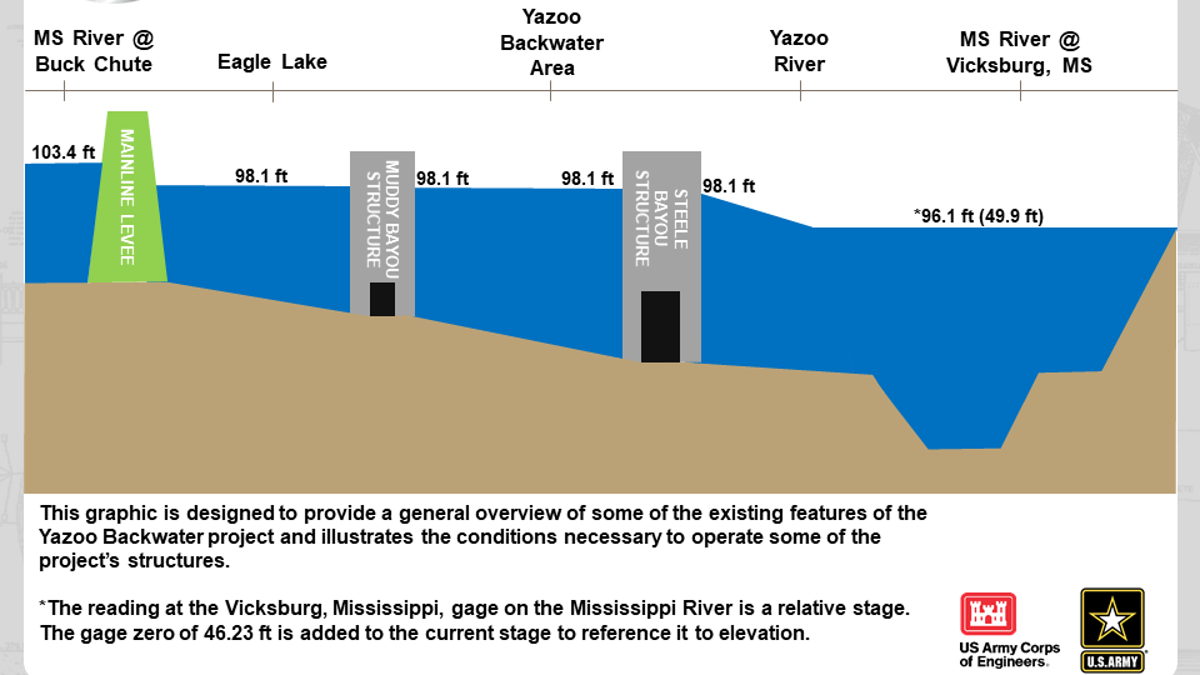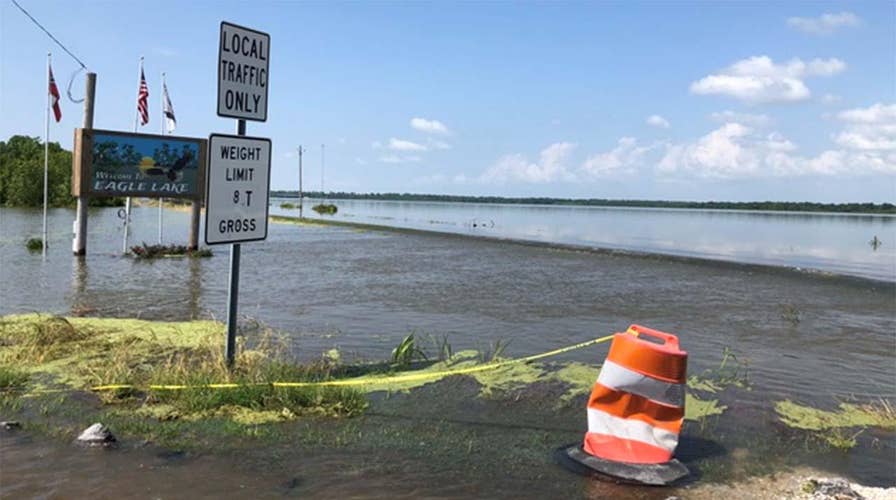Southern farmers deal with 500,000 acres of flooded land
Backwater has flooded more than a half million acres of land in the Mississippi Delta. Since February, the Army Corps of Engineers has kept flood gates to the Steele Bayou Structure closed to keep the Mississippi River from making the problem worst. Now as backwater sits in homes and on farms, residents are uncertain if they withstand anymore financial disruptions.
EAGLE LAKE, Miss. - Life, as most people know it, has come to a slow halt in the Mississippi Delta. More than 500,000 acres of land, according to the Mississippi Levee Board, has been covered by backwater floods that can’t seem to escape.
Bill Whitten, a local farmer, has lived with a share of that backwater sitting and building on his farmland in Valley Park, Miss. since February. About 1,440 acres of land where he would normally be planting corn and soybean crops have been rendered useless as they sit under backwater the Army Corps Engineers estimates is at an elevation about 98 feet above sea level.
“This year we were planning to plant corn in this field -- about 100 acres, said Whitten as he walked along his flooded land. “If I planted corn, it would probably be up over head high right now.”
In a good year, Whitten could turn a six-figure profit from his farm production. With 200,000 acres of farmland inundated across the Mississippi Delta, he believes he will be lucky to plant anything this year, let alone, make a profit.
ANOTHER DAY OF TORNADOES IN MIDWEST, BUT ST. LOUIS SPARED
“The water [has] got to give off the land and dry up before we can even think about planting,” he explained.
The backwater, which traveled from as far as northern Mississippi, would normally drain into the Mississippi River from the Steel Bayou control structure. However, with snowmelt and rain causing the river to sit higher than the backwater, there’s been nowhere for it to go but on to land.

The Army Corps of Engineers have closed the Steel Bayou Structure in the Mississippi Delta. The Mississippi River has been above flood level for more than 90 consecutive days. (Army Corps of Engineers)
In Eagle Lake, Miss. residents who had not already evacuated worked together out of the Eagle Lake Fire Department with local authorities and the Mississippi Emergency Management Agency to build makeshift levees to keep rising backwater from meeting Eagle Lake and overtaking roadways, homes and businesses.
THE LATEST: ARKANSAS RIVER TOWN EVACUATED
Despite the effort, water swallowed up the main road in town and crept into homes as backwater and lake water poured into each other -- forcing some residents to get around by boat.
Mississippi Emergency Management Agency officials were in the area making sure about 100 people who stayed weren’t “injured” or “killed.” Most people in the small town had already evacuated.

Residents of Eagle Lake, Mississippi getting around by boat as flood water rises more than halfway up trees and poles. (Fox News/Charles Watson)
“The residents who we know are going to flood and those that have limited, or no access have gotten out and left,” said John Elfer, Warren County Mississippi Emergency Management Director.
Earl Warren, Chief of Eagle Lake Volunteer Fire Department, said the water around his property rose to the top of the wheels of a small truck parked outside of the fire station. He had plans to evacuate with his family later that day.
“Everybody’s stressed out. We’ve been dealing with this for three months,” said Warren.
He and his wife own a small hotel and RV park in town that flooded. Warren said since then, they’ve lost out on at $7,000 a month income.
“From the first of February to now, I’ve had zero income,” he explained. “I’m 69 years old, it’s hard to start over again at that age.”
CLICK HERE TO GET THE FOX NEWS APP
Some believe the flooding would not have been as bad had the Army Corps of Engineers went forward with a plan to install pumps at the Steel Bayou. The pumps would have pumped backwater into the nearby Yazoo River if the floodgates were closed.
According to The Army Corps of Engineers, the project was vetoed by the Environmental Protection Agency in 2008.
“The Corps builds projects that are authorized to be built,” said a spokesperson for the Army Corps of Engineers, Vicksburg District. “The pumps are not in the realm right now.”
Greg Michel, executive director of Mississippi Emergency Management Agency, said at a press conference that the damage costs would run into the millions of dollars. He added the state would seek assistance from FEMA. But the federal agency wouldn’t be able to come in to assess damage until the flooding is over.
Whitten hopes flooding of this magnitude is only temporary. He’s getting by, for now.
“My income will be down to nothing,” he said. “We’ll have some insurance. Hopefully, it’s enough to get us by so we can farm next year.”










































